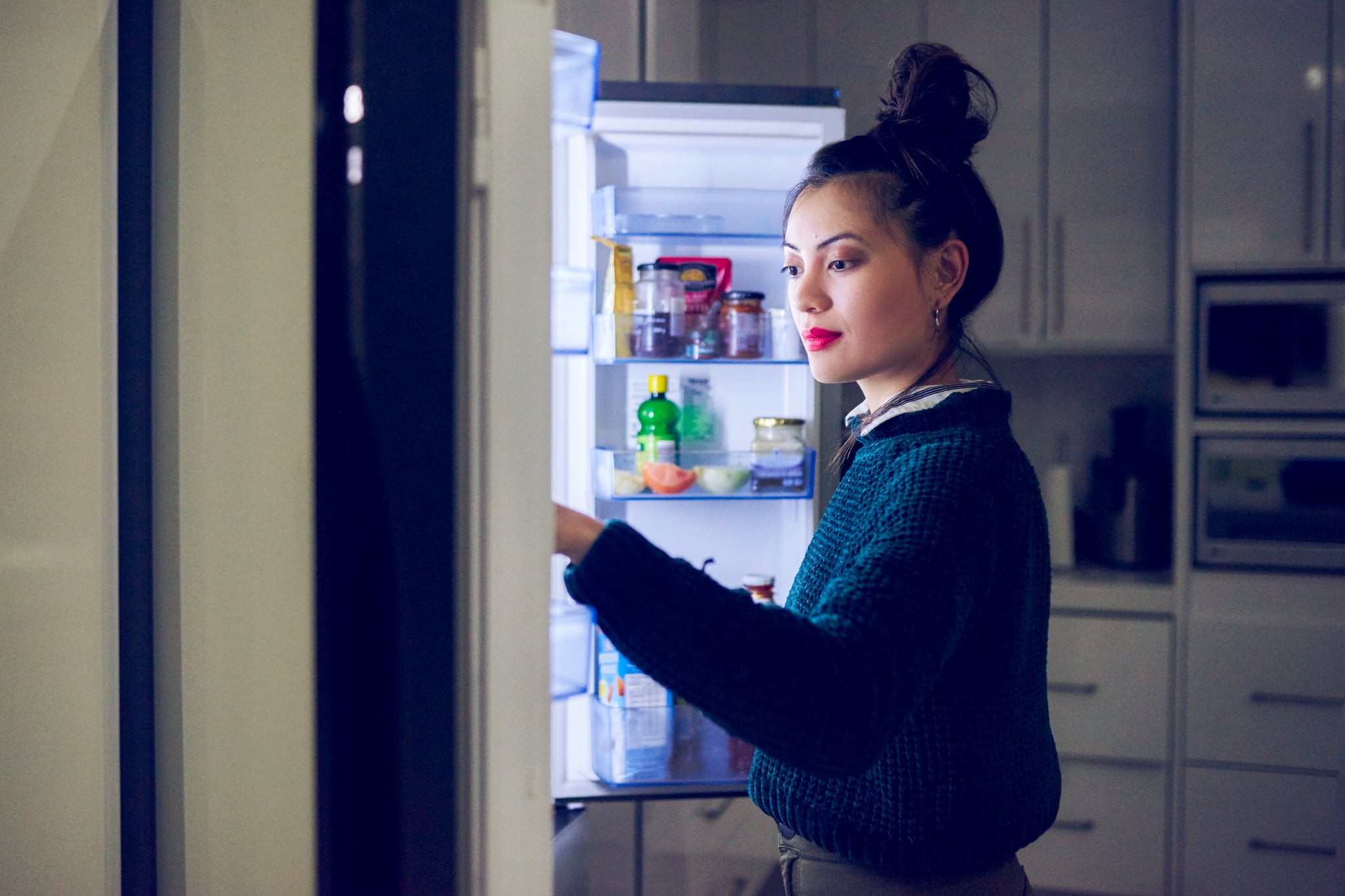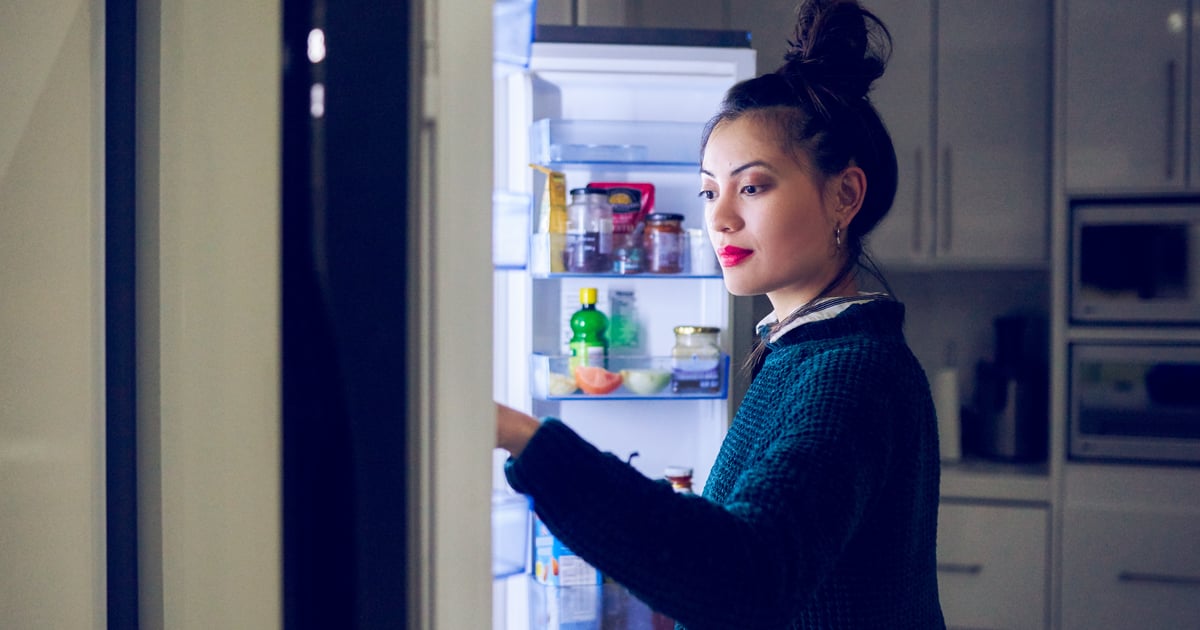Products You May Like

It usually happens when all the lights are off. Let me set the scene for you: I’m sprawled out on the couch or on my bed, covered in blankets, and finally relaxing at the end of a long day with my phone, TV, or modern romance novel to keep me company, when suddenly — boom! My stomach sounds like a thunderstorm, grumbling so loud I can’t even concentrate. It’s only been a couple hours since dinner, but I’m starving. Why does this keep happening? To learn more about what causes those nighttime cravings, I checked in with some nutrition pros.
Why Do I Feel Hungry at Night?
There are many reasons you might feel hungry at night, according to experts. “Tune in to see if it’s really hunger or if it’s boredom or some other emotion you are feeling. Very often, that’s the case,” Lisa Young, PhD, RDN, author of Finally Full, Finally Slim and adjunct professor of nutrition at New York University, told POPSUGAR. “If it’s physiological, it’s possible you didn’t eat enough during the day or at dinner, especially if you skipped protein.”
Hannah Brilling, RD, a clinical dietitian at the Weight and Wellness Center at Dartmouth-Hitchcock Medical Center in Lebanon, NH, agreed, adding that simple carbohydrates — found in foods like white rice, potatoes, and pasta — are digested more quickly, leaving us to feel hungrier sooner than proteins, fats, and fiber.
It’s also possible that your night hunger can be linked back to sleep. “Most often, feeling hungry at night is caused by a late bedtime or an underlying sleep issue,” Brilling said. “We recommend seven to eight hours of sleep at night. Many adults suffer from some kind of sleep disturbance, such as insomnia or sleep apnea. Night waking is often ‘treated’ with food.”
If you struggle to sleep and always find yourself at the fridge, you might take a closer look at those habits, Brilling explained: “Consider what your relationship with food is at night: Does it feel like you have to eat in order to get back to sleep? Try questioning this assumption. Collect some data — in the form of recording in a notebook — to see what really happens if you do or don’t eat at night.”
How Can I Prevent Nighttime Cravings?
Start by going to bed early and being mindful of what you eat for dinner. “It seems counterintuitive, but overeating — especially a high-carb meal — can speed up the timing or increase the intensity of hunger later on,” Brilling said. “Make sure the last meal of the day contains no more than 25 percent carbohydrates and try to choose unprocessed whole grains like farro, quinoa, lentils, or beans. The rest of the plate is ideally full of nonstarchy veggies and three to four ounces of protein. Using a model like Harvard’s healthy eating plate or the USDA’s MyPlate is a great way to assess balance.”
If you’re still hungry again before bed, that’s OK — you should never feel bad about fueling your body. “We get hungry at night because, in addition to behavioral reasons, the hunger hormone ghrelin increases in the evening. So how do you fight it? You don’t,” Charlie Seltzer, MD, CSCS, DABOM, a Philadelphia-based physician who’s double board-certified in internal and obesity medicine, told POPSUGAR. “There is nothing wrong with [eating at night] as long as your total daily caloric intake is appropriate. In fact, it may help you sleep better, and if you allow calories for something you see as a treat right before bed, you have something to look forward to and are less likely to hit the vending machine at 2:30 p.m.”
For a more virtuous nighttime snack, Brilling recommends eating a small portion of healthy fat and protein, such as whole-fat Greek yogurt, a cheese stick, a spoonful of peanut butter, or a quarter cup of nuts. “This has a dual benefit: the fat is satisfying to help us only eat a small portion and also sustains feelings of fullness for longer periods of time,” she said.
